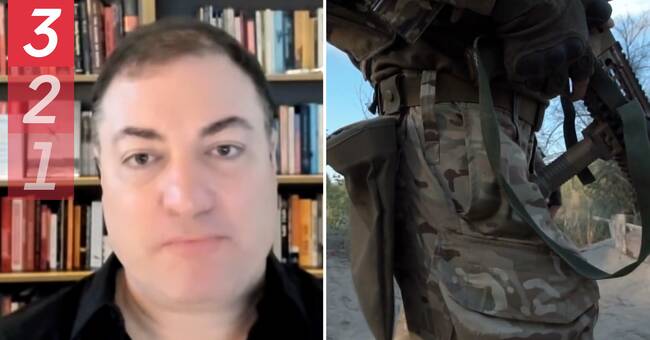They were called "the green men" when they were first discovered in 2014 during the conflict in Ukraine - soldiers without any designations or logos on their uniforms.
Since then, the green men have begun to be called the Wagner group and have appeared in conflicts in several parts of the world.
Very little is known about the group, but the soldiers have a reputation for being ruthless and are believed to obey directly under the Kremlin - something Russia denies.
Sean McFate is himself a former mercenary who has been active in Africa and Eastern Europe, today he is a professor at Georgetown University in the USA.
He says the Wagner group is a private army owned by an oligarch close to Russian President Vladimir Putin.
"The reason Putin likes them is that intelligence services around the world do not really know them," said Sean McFate.
The Wagner group is believed to be in place in Ukraine even now when tensions between the country and Russia are growing again.
Sean McFate says he does not know for sure if that is true but that he expects it to be so.
- They have been there before so I would say that it is likely that they are there now.
Easy to deny
According to him, the use of mercenaries is increasing.
The fact that it is often obscure who pays their salaries means that states can use them where they would not use ordinary military.
If they lose their lives in an operation, they are not counted among the victims and states can deny knowledge of their activities.
- In the information age, the ability to deny a weapon is more important than the weapon's mortality, says Sean McFate.
Not on paper
He himself became a mercenary out of curiosity and because it gave him greater freedom than being a soldier in the American army, but not all mercenaries themselves have chosen to take part in war.
Sorcha MacLeod som ingår i FN:s expertgrupp för legoknektar säger att rekryteringen ibland sker i fattiga länder där unga män inte har många framtidsutsikter. Enligt henne kan de tro att de rekryteras som säkerhetsvakter, men hamnar sedan i en betydligt mer våldsam miljö. Att legosoldater därtill inte existerar officiellt leder till både problem och personliga tragedier.
– Det är väldigt svårt att åtala legosoldater som begått krigsbrott eller brott mot mänskliga rättigheter eftersom ingen vet vilka de är. Och om en legosoldat blir dödad i strid får deras familjer inte alltid veta vad som har hänt deras närstående.
Klicka på klippet för att höra Sean McFate berätta om tre saker du inte visste om legoknektar och se mer i Utrikesbyrån: Putins hemliga armé ikväll kl 22 i SVT2 eller från kl 19.30 i SVT Play.

